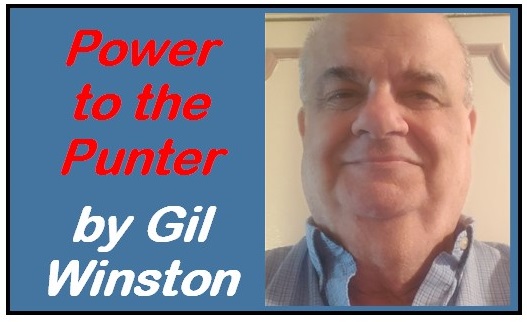I was first introduced to the joys of handicapping harness racing at the age of sixteen and found immediate success.
I paid no attention to the trainers of the horses. My focus was only on the amazing consistency of the Standardbred horse. I attribute the success I achieved to the application of logic and observation, and the ability to completely shut out all of the noise that surrounds the horseplayer.
 I was able to ignore hunch bets based on names, numbers and personal references, and the well-meaning inside information that was everywhere.
I was able to ignore hunch bets based on names, numbers and personal references, and the well-meaning inside information that was everywhere.
I did take it on the chin for a short time when I did succumb to the inside information. How did it happen? The money I made betting on the horses led me to the ownership side of the game, and I got to meet some great people.
My new friends were always happy to provide their knowledge of the horses that were to race, and occasionally I was rewarded. But more often than not, there were apologies or excuses (mostly excuses) that followed the losses, and for the first time my success faltered.
So many horseplayers suffer from FOMO (fear of missing out) and continue to make wagers based on inside information from well-meaning friends, and focus on the wins based on inside information instead of the losses from the same sources.
My wagering strategy includes the following premise: If you ignore inside information, you will miss out on some winning wagers. But I promise that the losses will far outweigh the gains and the memories of the wins will keep you coming back for more. FOMO lives.
After I realized that inside information was killing me, I closed that window, and returned to my winning ways. To be clear, I have no problem congratulating a friend when his horse beats me out of a wager on another horse.
The pain of losing to a friend’s horse (even after he told me his horse couldn’t lose) is no different to the pain of losing to a stranger’s horse.
The wisest words I ever received were from my friend, Irving Pollock.
“Gambling is not a popularity contest, he told me.”
I had an amazing run for the next decade or so and would not trade those years with anyone else on our planet. I worked hard. The bad beats were tough, but the hits were significantly more frequent. As my friends would tell you, the belief that drove me was, “the harder I worked, the luckier I got.”
I provided this personal history as a backdrop of my opinions of the evil that permeates harness racing, today. I have no court of law evidence. My proof, if you will, is all circumstantial and I could not imagine it would hold up in a court of law.
But my confidence in these opinions is absolute. I have been told many stories of malfeasance among horsemen, but this is only hearsay. Some of it I believe, and some of it I do not. My opinions are based on logic and observations, and those tools paint an ugly picture.
When I first started, there were many stories of fixed races, and some of those stories were correct. However, there were not nearly as many bad races as were alleged by the gambling public. In fact, there were not nearly as many bad races as many horsemen with inside information, alleged.
Horsemen were my source of information of bad races. The proof that the majority of races were honest is that I bet on every race with the anticipation that the race was going to be honest. Sometimes, I paid the price of my ignorance, but my overwhelming success validated my confidence in the game.
Some of my greatest success was at Monticello Raceway where the stories of fixed races were never-ending. Those were the days when alleged fixed races happened on the track, where all could see, and act accordingly. But those days are gone. I have seen a few races in recent years where evil on the track is apparent, but those circumstances are rare. Now, we have the evil that lies within, and it is invisible to the harness racing public.
A lot of news in the last few years is about horsemen convicted of drugging horses to gain an unfair advantage over their competition, and to the detriment of the animals they allegedly loved.
The key element of this story is that the convictions were based on investigative skills because there are no tests (or are tests prohibitively expensive) that can identify the most potent drugs.
One might think that these convictions would result in a scared-straight scenario where those using these undetectable drugs (or whatever they are) would return the evildoers to the straight and narrow.
Needless to say, those who skirt the law for their own personal gains do not think like that. They only see stupid people who did not know enough to keep their mouths shut, and because these thieves are “so much smarter than those who were caught,” they have no intention of ceasing their illicit activities. They believe will never be caught and there is just too much easy money out there to be stolen from honest horsemen and the betting public.
There have been many stories recently about horsemen being fined and suspended because of their horses being found with illegal substances in their systems. Some of these charges seem to be dubious and explainable.
Because we are in an era where many people influential in and around government are hell bent on removing horse racing, forever, those accused are deemed guilty with no recourse. Some are actually guilty and made a miscalculation. But those whose explanations appear to erase any logical doubt of their innocence are swept to the curb along with the others trying to game the system.
But these are detectable drugs. That is a serious issue, not the big issue. Unless these criminals make a misstep that can be proven without a reasonable doubt, they will continue to flourish with performance enhancing products. Since these products are undetectable, how are we so sure that they are being used?
Frequently horsemen see something about a horse where they believe the current trainer is making a mistake, and a change in equipment, training regimen, or the way the horse has been driven will show a marked improvement.
Maybe it is simply the fact that current connections are too impatient, and the horse just needs some time off. There are many reasons why a trainer or owner believes a substantial improvement is possible.
Sometimes the assessment is correct. Sometimes the assessment is wrong. However, there are trainers whose success rate of immediately improving horses is both logically and mathematically challenging. Multiple seconds, and multiple class improvements should be an occasion for trainers and owners to smile. It should not be an expected result almost every single time a new horse enters the barn. Especially when these oft repeated occurrences are horses taken from well-respected and successful trainers in their own rights.
Being an outstanding trainer and a thief are not mutually exclusive skills. Apply the analogy to one of the greatest baseball players who ever lived. Barry Bonds. Most followers of baseball agree that Barry Bonds was the caliber of player who would have made the Hall Of Fame without the benefit of performance enhancing drugs. Hearsay and circumstantial evidence indicated that Bonds was not content with his success due to his lack of home run hitting power, and he welcomed the dark side into his training regimen.
I have no court-of-law level evidence that raises suspicions of wrongdoing to undeniable fact.
Thoroughbred trainer Bob Baffert, and harness racing trainer Ron Burke are two examples of horsemen whose skills as horsemen cannot be questioned. However, their statistically improbable abilities to improve horses defies all logic and common sense. Are the naysayers just sufferers of extreme jealousy?
Horseplayers are challenged on a regular basis when they see horses with dubious form going off at short odds. Before the time when undetectable drugs became a factor in handicapping races, value-seeking bettors would bet against these dubious favorites with a high degree of success. These short-priced barn-to-barn change wonder horses now win way too often to be ignored.
How many horseplayers pay attention to the trainers before they make a wager? As I stated at the beginning of this article, the practice never crossed my mind in my most successful times. In fact, trainer changes were not even tracked on past performance lines back then. You would need to keep your own records to know.
In this day and age, I would never suggest to any horseplayer that trainer changes should be ignored. It is now the first thing to look for when you pick up the past performances.
Solutions? The laws that protect the innocent are used by the guilty to hide their actions. Racehorses are no longer stabled on racetrack grounds. Their homes are on private property away from prying eyes. Maybe more sophisticated investigation techniques will uncover the crimes. However, until a financially responsible detection system can be created and implemented to the highest degree of accuracy, the evil will continue to lie within the system.
by Gil Winston, for Harnesslink

 USA
USA Canada
Canada Australia
Australia New Zealand
New Zealand Europe
Europe UK / IRE
UK / IRE



